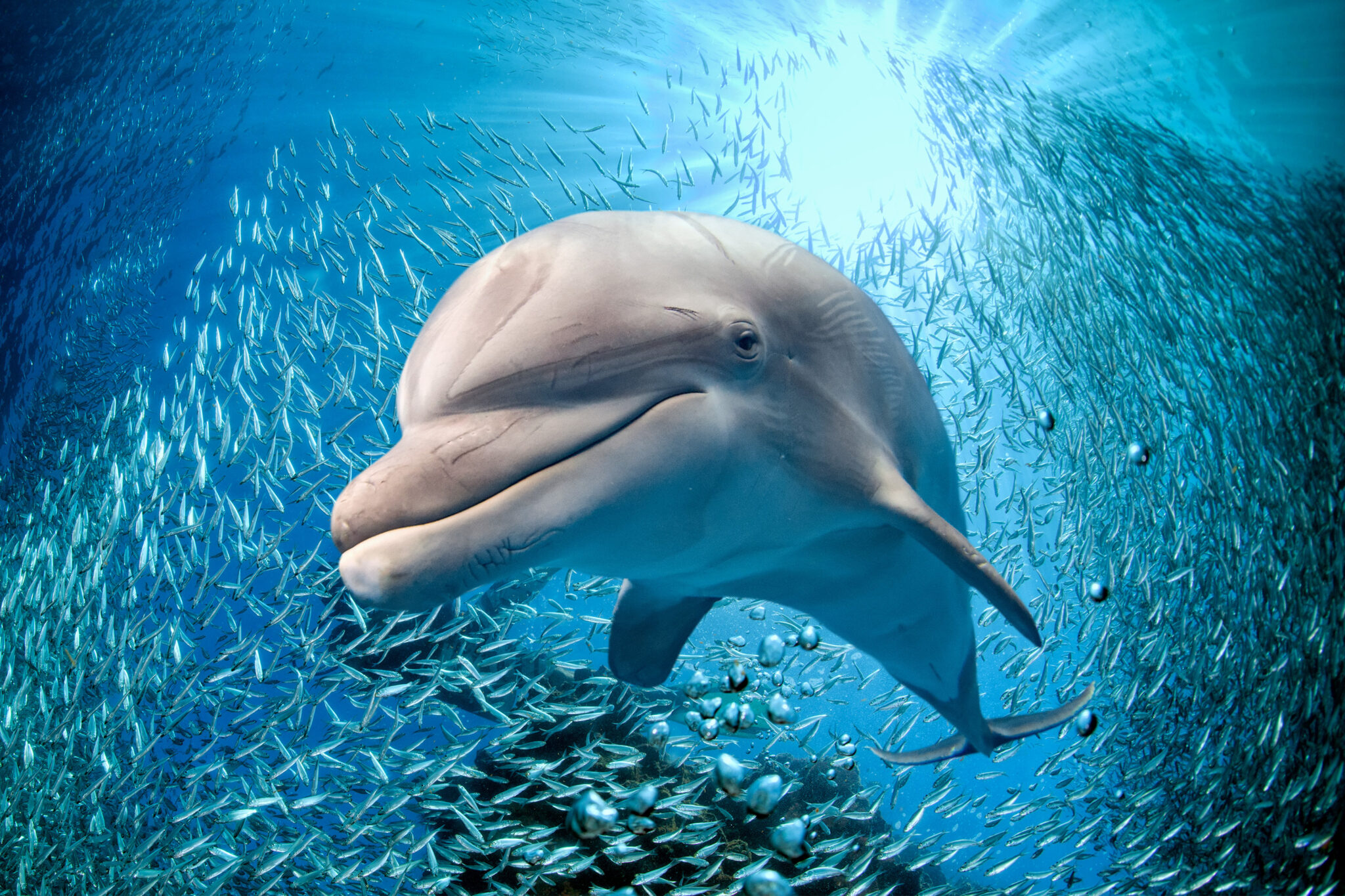Discover Fascinating Dolphin Facts That Will Certainly Surprise Your Good Friends
Discover Fascinating Dolphin Facts That Will Certainly Surprise Your Good Friends
Blog Article
Dive Into the Sea: Fascinating Dolphin Facts for Ocean Lovers
The world of dolphins provides an interesting crossway of intelligence, social actions, and ecological significance. With approximately 37 species, these marine creatures show a variety of remarkable characteristics that not just astound sea lovers however also underscore their vital duty in aquatic ecological communities. From their intricate interaction techniques to their outstanding problem-solving capacities, dolphins test our understanding of animal intelligence. Nonetheless, the pushing requirement for conservation initiatives to shield these animals and their habitats raises critical inquiries regarding our obligation in the direction of the sea's residents. What ramifications do these factors hold for our communications with these exceptional beings?
Dolphin Variety Diversity
Diversity is a hallmark of the dolphin household, including a wide variety of varieties that exhibit unique physical qualities, actions, and environments. The family Delphinidae, commonly called nautical dolphins, consists of around 37 varieties, each adapted to certain environmental particular niches. As an example, the bottlenose dolphin (Tursiops truncatus) is renowned for its intelligence and flexibility, prospering in both open and coastal sea atmospheres.
On the other hand, the orca (Orcinus orca), often referred to as the killer whale, is the largest participant of the dolphin family and is defined by its striking black-and-white pigmentation. Orcas demonstrate complex social structures and searching methods, showcasing the behavioral diversity within the family members. Various other species, such as the spinner dolphin (Stenella longirostris), are kept in mind for their acrobatic displays and preference for warmer waters, highlighting the flexibility of dolphins to various marine communities.
In addition, river dolphins, consisting of the pink river dolphin (Inia geoffrensis), live in freshwater settings, better illustrating the extensive habitats that dolphins occupy. Dolphin Facts. This extraordinary diversity not only enriches marine communities however likewise stresses the value of conservation initiatives to safeguard these exceptional creatures and their environments
Social Habits and Communication
The complex social actions and interaction methods of dolphins are crucial elements of their existence, facilitating group cohesion and improving survival. These extremely smart marine creatures show complex social structures, often developing pods that can vary from a couple of individuals to over a hundred. Within these groups, dolphins participate in actions such as participating hunting, social play, and common security, which cultivate solid bonds among participants.
Dolphins utilize an innovative variety of vocalizations, consisting of clicks, whistles, and body language, to communicate details and reveal emotions. Their trademark whistles work as special identifiers, similar to names, enabling individuals to call out to one another. This singing interaction is complemented by non-verbal signals, such as leaping, slapping the water, and synchronized swimming, which additionally enhances their interactions.

Special Feeding Habits
Special feeding behaviors define dolphins, showcasing their look at here now versatility and intelligence in various marine environments. These marine mammals are known for their diverse diet regimens, which primarily are composed of fish, squid, and shellfishes. Their searching techniques can vary dramatically, typically customized to the details victim and ecological conditions.
One noteworthy technique is cooperative searching, where dolphins work in groups to herd schools of fish right into tight formations, making it much easier for people to catch their dish. This social habits not only boosts their feeding performance but also reinforces social bonds within the covering. Additionally, dolphins have been observed using a technique called "fish-whacking," where they utilize their tails to confuse or stun fish, helping with simpler capture.
Another remarkable feeding practice is echolocation, which enables dolphins to detect target also in dirty waters. On the whole, the one-of-a-kind feeding behaviors of dolphins highlight their role as skilled killers within the aquatic environment, showing both knowledge and ingenuity.
Intelligence and Issue Addressing
Dolphins exemplify remarkable cognitive capabilities that prolong beyond their innovative feeding techniques. Their intelligence is obvious in their analytic skills, social interactions, and ability for learning. Study has actually demonstrated that dolphins can utilize devices, such as making use of marine sponges to safeguard their rostrums while foraging on the seafloor. This actions highlights their capacity to adjust their setting effectively and adjust strategies to boost survival.
In addition, dolphins exhibit sophisticated communication abilities, employing a complex system of clicks, whistles, and body movement. Dolphin Facts. This communication is essential for collaborating team activities, such as searching and socializing, showing their ability to function jointly towards a common goal. Their capability to comprehend abstract ideas, consisting of self-recognition in mirrors, further stresses their cognitive refinement
In regulated researches, dolphins have actually shown an ability to fix challenges and do jobs that require both memory and essential thinking. These communications suggest not just knowledge yet additionally a desire to engage with their atmosphere in unique ways. In general, the cognitive prowess of dolphins puts them among one of the most smart species in the world, fostering a deeper gratitude for their duty in aquatic ecosystems.
Preservation and Environmental Impact
Preservation efforts focused on shielding marine communities are crucial for protecting dolphin populations and their habitats. Dolphins are highly sensitive to environmental adjustments, and their survival is delicately connected to the wellness of nautical ecosystems. Overfishing, contamination, and environment change pose considerable threats to both dolphins and their settings.
Overfishing interrupts the food cycle, resulting in a decline in prey types vital for dolphin survival. Pollutants such as plastics and chemicals accumulate in aquatic atmospheres, endangering dolphins via ingestion and bioaccumulation. Raised water temperatures and ocean acidification, effects of climate change, additionally endanger the delicate equilibrium of marine environments, affecting dolphin breeding and migratory patterns.
By prioritizing preservation initiatives, we can ensure that future generations appreciate the elegance and vigor of dolphins and the oceans they populate. Shielding marine ecosystems is not simply concerning saving dolphins; it is concerning internet maintaining the elaborate internet of life that maintains us all.
Conclusion
Dolphins exhibit the complexity and richness of marine life via their varied types, complex social frameworks, and progressed cognitive capacities. Their one-of-a-kind feeding practices and communication methods even more highlight their versatility and knowledge. As important parts of aquatic ecosystems, dolphins underscore the necessity of recurring preservation efforts to protect their environments. Securing these exceptional creatures is crucial not only for their survival but also for maintaining the wellness and equilibrium of ocean atmospheres internationally.
Various other varieties, such as the rewriter dolphin (Stenella longirostris), are noted for their acrobatic display screens and preference for warmer waters, highlighting the flexibility of dolphins to numerous marine environments.
Overall, the special feeding behaviors of dolphins highlight their duty as knowledgeable killers within the marine environment, showing both intelligence and ingenuity.
Generally, the cognitive prowess of dolphins puts them among the most intelligent species on the earth, fostering a deeper recognition for their function in aquatic environments.

Report this page